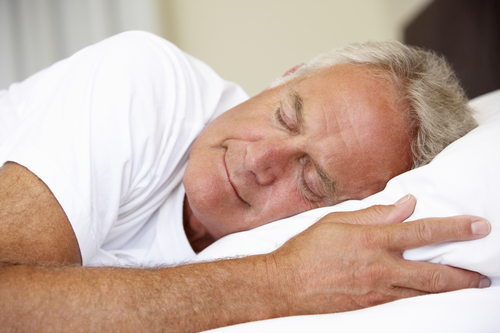According to research from the National Sleep Foundation, the older you get, the more times you wake up in the middle of the night. In fact, the number of sleep awakenings more than doubles between ages of 50 and 79. Unfortunately, the myth persists that people need less sleep as they age — but that couldn’t be further from the truth. Once you person reaches adulthood, your need for sleep remains relatively constant, despite your age.
Seniors are especially susceptible to suffering from a lack of sleep. Medications, poor sleep hygiene, and health issues can all impact the amount and quality of sleep seniors get. Here are five restful tips to help you combat sleep deprivation and get on the path to a good night’s sleep.
Get the Right Mattress
A restful night’s sleep starts with the right mattress. A high-quality memory foam mattress can create a contour around your body to maximize your comfort and potential rest. The foam molds in response to heat and pressure to help create a more even distribution of your body weight. Settle in for a comfortable night’s sleep and surround yourself in hypoallergenic bedding that keeps your body warm without overheating.
Spend Time in the Sunshine
The amount of both natural and artificial light can affect your sleep patterns and energy levels. Exposure to light can actually help re-sync your body and mind and get you back on a regular sleep schedule. Spend less time around natural and artificial light in the evening, and surround yourself in sunlight in the morning to give yourself a boost of energy. Spend the mornings stretching your legs outdoors in natural sunshine with a walk or some gardening. If you’re not that physically active or you suffer from a health problem, set up a place outside where you can paint, do crosswords, and read.>
Get on a Regular Sleep Schedule
If you’re not on a regular sleep schedule, getting on one may take some time. But waking and going to bed at the same time every day can help regulate your sleep patterns and keep you rested. Spend the hours of the day when you’re the most energetic focusing on work, errands, or paying bills, instead of putting them off to the end of the day. Your evening routine should be stress free, relaxing, and focused on getting to bed to catch those precious zzzzs.
Practice Good Sleep Hygiene
Hygiene isn’t just about grooming. Good sleep hygiene means cutting back or eliminating stimulants like caffeine and alcohol, removing clutter from your bed. Instead, take a warm bath to encourage relaxation, put on a fresh pair of pajamas, dim your lights, and spend a few minutes reading instead of playing on your phone or tablet. The lights from your electronics can actually signal wakefulness to your brain and further disrupt your sleep cycle.
Get Checked by Your Doctor
Sometimes senior sleep issues have nothing to do with your daily habits and everything to do with a medical condition. Restless leg syndrome, side effects from medication, or physical pains can all derail your sleep. Keep a sleep journal to document what you’re doing before bedtime, any sleep interruptions and pains, and make an appointment with your healthcare provider. The more information you can provide, the easier it will be for him or her to untangle what’s happening in the midnight hours and help restore your sleep.




